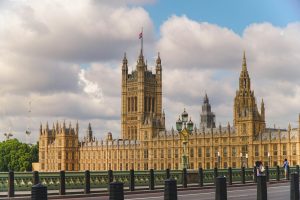Labour’s leader, Jeremy Corbyn MP, has confirmed that his party will now back remaining in the Customs Union. What Labour is now proposing is unlikely to be accepted by the EU, but is an astute piece of political positioning.
Corbyn said a Labour government would seek and ‘negotiate a new comprehensive UK-EU customs union to ensure that there are no tariffs with Europe.’ A Labour government, he explained, would want to have a say on future EU trade deals while ending freedom of movement. Labour would also seek to negotiate ‘protections, clarifications or exemptions where necessary in relation to privatisation and public service competition directives, state aid and procurement rules, and the posted workers directive.’[1]
It seems unlikely that the EU would accept this in exchange for a close relationship. The EU has consistently opposed ‘cherry-picking,’ which would allow the UK to maintain tariff-free access to the EU without upholding key parts of EU law. Labour are aiming for exemptions on state aid, aspects of TTIP and freedom of movement, while also maintaining a close relationship through the customs union. Judging by the EU’s statements on cherry-picking to date, it seems unlikely that a Labour government would achieve these objectives.
Politically, Labour’s suggestion of a customs union is clever positioning. The speech contained assurances which cater to Labour leavers, such as pledging to end freedom of movement. At the same time, Labour remainers will be encouraged that their leader has explicitly backed remaining in a customs union.
Perhaps more significantly, Labour can now back amendments to the Trade Bill and Taxation (Cross-Border Trade) Bill, which would commit the Government to staying in the customs union. Julian Smith MP, the Chief Whip, has reportedly told the Prime Minister that there is a ‘very real threat’ that Labour could unite with 15-20 Tory rebels and defeat the Government.[2] The change in policy increases the chances of a significant Government defeat over a central plank of its Brexit plan.
Labour does not need to worry about whether its plan is acceptable to the EU. In opposition it is more or less insulated from the realities of the negotiation table. Labour’s new position on the customs union is significant however. It increases the chances of a major Government defeat, while keeping both the pro and anti-EU elements of the party largely onside.



